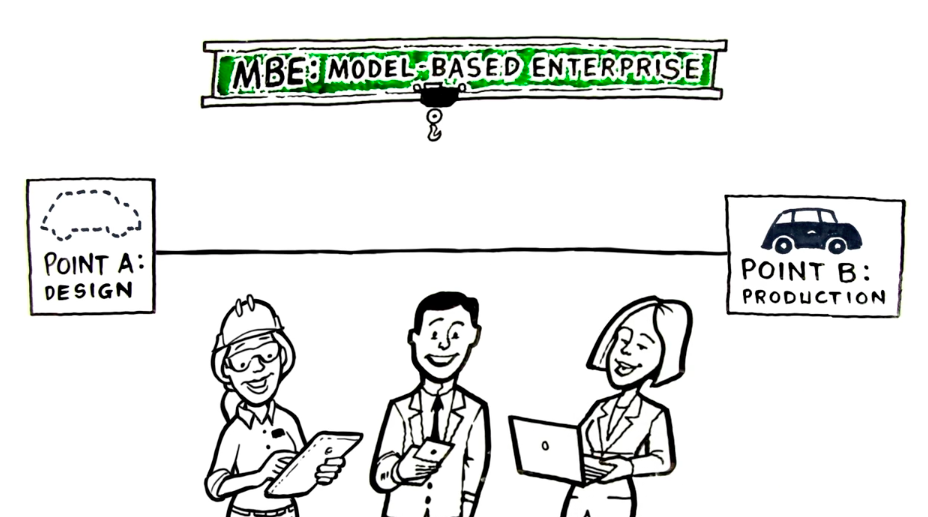Action Engineering helps customers streamline and modernize their processes by creating what they call a “Model Based Enterprise.” It’s a tricky concept to explain and visualize, so they turned to Rip Media Group to put together a video that would help explain while not boring the viewer.
After conferring with the client, the creative team at Rip Media determined that a great way to keep the audience engaged would be to utilize Whiteboard Animation. But even in the world of Whiteboard Animation, there are different approaches. There’s a standard Whiteboard Animation in 2D and there’s what’s called Live Draw Whiteboard Animation.
Which to choose… which to choose… Well, how about both?
Both styles rely on hand drawn art laid against a plain background – as if on a white dry erase board.
As a viewer, you know it’s ‘whiteboard animation’ when:
- The characters and art are hand drawn as opposed to digital or motion animation.
- Time lapse is used to speed up the drawing motion.
- Real hand drawn art, not templates, clip art, etc are used.
- Its entirely original work
As a viewer, you know it’s ‘ Whiteboard 2D Animation’ when:
- The characters and art move or are in motion, with animation.
- The drawing is seen, then characters or scenes ‘come to life’.
- There is no hand drawing for portions of the video, but movement and the story progresses
- The best have entirely original work
For Action Engineering, we chose the analogy of an assembly line to show how elements can get tangled and discombobulated, causing parts to jam or drop off the line. Then, as the line straightens, the parts flow smoothly.
With standard Whiteboard animation, items have greater movement and things are brought to life.

For Live Draw Whiteboard, the hand, often recorded live, dominates the visuals so that only a couple of camera tricks can be added to simulate movement of any kind.
Which do you prefer?
For more information on how Rip Media Group can help with all your video marketing needs, contact us today.